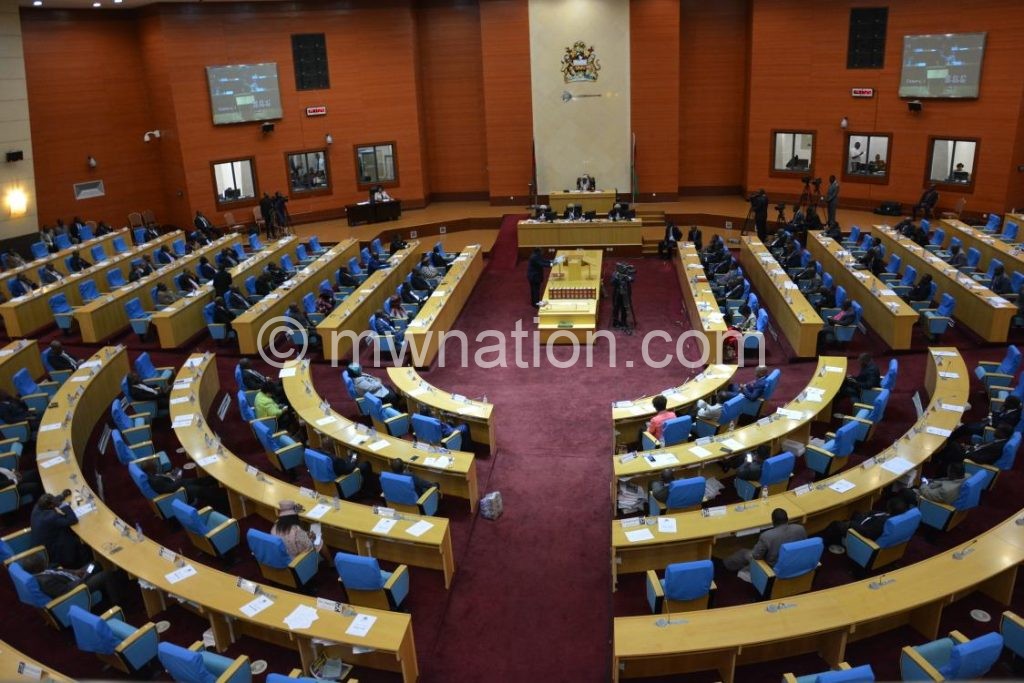Some experts say the additional 36 legislators will likely make it difficult for the House to pass matters decided by a majority vote.
Parliament yesterday passed a Malawi Electoral Commission (MEC) report on number and boundaries of constituencies and wards for the 2025 General Elections, and constituency maps.
Majority vote will now be difficult to get in the House
Political scientist Henry Chingaipe is of the view that the new seats will increase the absolute threshold of affirmative votes.
In the adopted report which was submitted to the National Assembly last week, MEC determined that the number of constituencies be increased from the current 193 to 229, and the wards should be 509, up from 462.
This means the Northern Region will have 37 constituencies from the current 33, the Central Region will have 20 new constituencies—from 73 to 93—while the Southern Region will have 98 constituencies, a jump of 11 from 87.
In an interview, Chingaipe, whose areas of expertise is governance and development, public policy analysis as well as political economy development,t said: “As you know, constitutional amendments require two thirds of affirmative votes. With 193 seats, the threshold for affirmative votes is 128. With 229 seats the threshold will move to 152 affirmative votes. That is an addition of 24 votes. It means more work for party whips, especially the government chief whip.”
For presidential election, he believes the number of parliamentary constituencies will not be affected because the whole country is one constituency.
Asked whether the country is well-positioned to manage more constituencies, Chingaipe said while it is reasonable to argue that Malawi is a constitutional democracy and re-demarcation of constituencies is a constitutional requirement, the population factor is a key variable in considering boundaries and sizes of constituencies.
According to him, the only way out is amending the Constitution to change the factors that are considered in the review or by adopting a different electoral system that provides opportunities to cap the number of seats and does not require review of boundaries.
During debate on the report, Democratic Progressive Party (DPP) Member of Parliament for Mulanje West Yusuf Nthenda said he was not in support of the report as it would increase the parliamentary wage bill.
But in his contribution, Zomba Ntonya lawmaker Nedson Poya said the review of boundaries of constituencies and wards was long overdue, as the exercise was last done 23 years ago.
The annual wage bill for MPs rose from K15.4 billion in the 2019/20 National Budget to K20.7 billion in the 2020/21 budget after the lawmakers gave themselves huge allowance and salary hikes.
Besides getting over K2.2 million monthly in salary and allowances, each MP is also entitled to K40 million Constituency Development Fund per annum.
In an earlier interview, Centre for Research and Consultancy executive director Milward Tobias called for a proper balance between economic and governance, saying Malawi should not be in a situation where governance becomes a burden to the economy but rather it should be a catalyst for development.
On his part, University of Malawi political science lecturer Mustapha Hussein earlier described the exercise as important, saying it will address political under-representation in some big constituencies.
But he urged caution, saying if not well-managed, some affected strongholds of political parties might be contested.
In 2017, various stakeholders called for the splitting of constituencies that are deemed big in terms of area and population size.
A similar exercise last took place in 1999 when 16 more constituencies were created, raising the number from 177 to the current 193.
The post More MPs to toughen voting in the House appeared first on The Nation Online.
 Moni Malawi
Moni Malawi 

